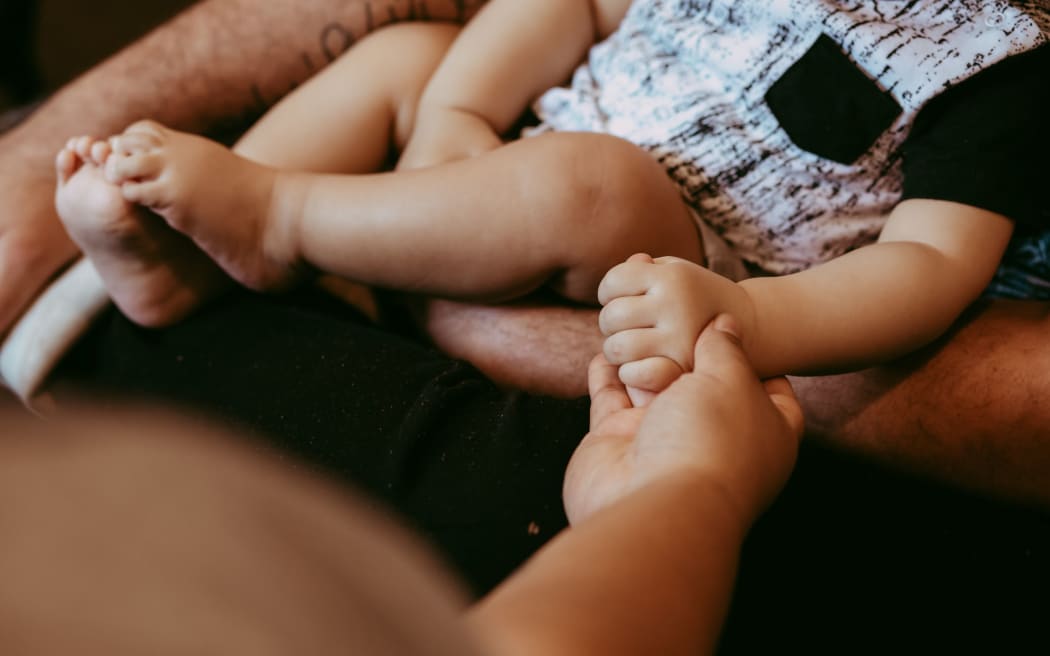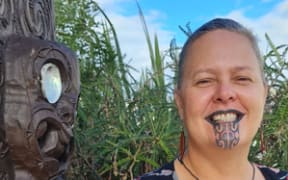
New Zealand health data shows uneven vaccination rates depending on a baby's ethnicity, with about ten percent fewer Māori babies fully vaccinated by one year old, compared to babies of other ethnicities. Photo: Supplied/ NZ Human Rights Commission
Researchers hope to boost the number of pēpi Māori under six months old being immunised by learning more about barriers to accessing primary health care.
The immunisation rate for pepi Māori under six months had dropped from 80 percent in early 2020 down to 45 percent.
Only 79 percent of Māori pēpi were fully immunised at one year old, compared with 90 percent of other ethnicities.
Dr Amber Young (Ngā Mahanga) from the University of Otago's pharmacy school said the decrease in vaccinations given early in life was caused by a number of factors.
"Access barriers is a real concern for many people. So these issues are structural in nature - they're not down to the individuals, and we have to make sure any interventions we put in place will address the structural factors that are causing this problem," Young said.
"Often there might be a lack of information to whānau about the vaccines and why they're important. People might not be able to get to the GP practice to get their vaccines, often people might fall out of the system and not be reminded that vaccines are recommended."

Dr Amber Young from the University of Otago's pharmacy school, is researching barriers to pēpi Māori receiving vaccines before they are 6 months old. Photo: Supplied/ University of Otago - Rewa Pene
She said the Covid-19 pandemic exacerbated pressure on immunisation services, leaving pēpi Māori vulnerable to other vaccine-preventable diseases.
"Anything that's affecting access, and people's ability to go to their GP to receive vaccination or access services is going to directly impact their health. So if their accessibility to GPs and the ability of GPs to reach these whānau are impacted negatively, then it could have an impact on immunisation rates.
"When there are outbreaks of disease like pertussis, which happens usually every three to four years, ... it's pēpi Māori who are often more adversely affected than other groups. "
Young planned to look into what primary healthcare workers knew about the process of pēpi enrolment with primary health care.
This would include investigating the barriers health care providers saw in their practice and what obstacles whānau noticed from their experiences.
She also planned to interview whānau whose pēpi were not enrolled in those early stages and those who were not immunised within a six week timeframe.
To carry the research out, she was teaming up with Hāpai te Hauora - Māori Public Health and would research how primary health care ensured that those who had not registered their babies were immunised.
"It's not pēpi Māori and their whānau fault, we really need to look at the system to help address that. And because immunisation rates are inequitable, we know that pēpi Māori are then more vulnerable to becoming sick with these vaccine-preventable diseases," Young said.
She said Hāpai te Hauora would lead the recruitment and interviews with whānau and ensure everything was done through a te ao Māori lens so everything was culturally appropriate.







